Industrial and Information Systems
Professional Degree Course
Location: Pesaro
Access: Planned at level locally
Order: L-P03
Type: First Cycle Degree (3 years)
The course of study in short
The programme in 'Industrial and Information Systems' is a professionalising course of study whose main objective is to provide skills that prepare for professional practice. As a consequence, graduates are more likely to enter the market at the end of the study program rather than enrolling in a master programme.
Graduates from the programme, in fact, will be able to enrol in the Association of Industrial Technicians and work as freelancers in the electrical and energy sectors. They will also have the opportunity to successfully pursue a career in the industry sector, taking on tasks related to energy and electric plants.
The programme is structured so that, already in the first year, in addition to basic knowledge, courses on professionalising subjects are delivered with the aim to train technicians with skills in the fields of electrical, thermal and industrial engineering, with particular attention to industrial and information systems.
In the last part of the programme, a considerable number of training credits are consistently devoted to laboratory activities (48 out of 180) as well as to professionalising internships (48 out of 180) in firms and companies. Students will also acquire adequate knowledge and understanding, in written and oral form, of the English language.
The study program has two curricula:
- electrical, energy and industrial plant technologies;
- electrical, energy and naval plant technologies
Only 50 students per year can be enrolled in the study programme; a test will be carried out in order to define the first 50 students in case of enrolling number will be higher than 50.
The study programme includes training activities delivered in the following disciplinary areas:
- basic training;
- Electrical, electronic and industrial automation technologies;
- Information and Information Technologies
- Mechanical technologies and energy efficiency technologies;
- Naval and nautical technologies;
Other than conventional method of teaching delivery, the Degree Program makes use of e-learning platforms (Moodle - Learning Management System) for the transmission of knowledge and skills.
Finally, all students will be able to take advantage of internationalization programs to carry out periods of study abroad.
Professional profile and employment opportunities
Engineer of Industrial Systems and Information
Role in a work context:
Graduates will take care of the study and design of projects related to thermal, industrial and electrical systems.
The degree programme aims to train the professional figure of the graduate technician who, in a work context, will deal with the development of:
- plants related to renewable sources and energy efficiency;
- technical and service systems in the civil and industrial fields;
- civil and industrial electrical systems;
- home and building automation systems;
- HVAC systems, heating and cooling production systems and cogeneration plants.
The achievement of the final qualification gives access to the corresponding professional register, upon passing the professional qualification exam (Association of Industrial Technicians).
Skills associated with the role:
Graduates in Industrial and Information Systems will develop skills that concern three main areas:
- electrical design: in this context graduates will acquire knowledge of the tools and techniques necessary for the analysis of civil and industrial electrical systems, their dimensioning and installation in real contexts, also taking into account current safety regulations;
- energy design: graduates will gain theoretical and practical knowledge for the development of various types of HVAC heating and cooling generation systems aimed at optimising energy efficiency in civil and industrial application contexts, in compliance with safety constraints;
- industrial design: in this area, graduates will develop solid skills in the design of industrial plants as well as the ability to dimension mechanical components and systems from a functional and construction point of view and choose the materials and technological procedures to be used in their construction.
In addition, they will be able to effectively operate autonomously as well as in working groups and interact with specialists from other engineering sectors, using appropriate technical language and knowledge of the basic concepts.
Occupational opportunities:
Graduates from the programme in Industrial and Information Systems will be able to work as freelancers as well as in institutions or companies, whether in the public or private sector. They will be able to:
- choose the most suitable components for water and air conditioning systems with direct expansion; ventilation systems;
- choose the most suitable energy production systems for use in heating and cooling plants;
- carry out feasibility studies of industrial plants as well as of the main technical, logistics and service plants;
- properly interpret the dimensioning and calculation of heating systems, heating plants and refrigeration plants;
- perform the dimensioning of simple energy generation and storage systems, in LV and MV, with particular reference to the photovoltaic case;
- correctly carry out measurements on electrical quantities and be able to critically evaluate the data obtained from measurement instruments and systems;
- perform the dimensioning of simple ICT systems for the management and transfer of data and information, with particular reference to the home automation context;
- evaluate the opportunity to use energy systems powered by renewable sources to produce electricity, heat or cooling;
- apply the most innovative techniques in the field of energy efficiency;
- implement the regulations relating to energy, electrical and industrial plants.




